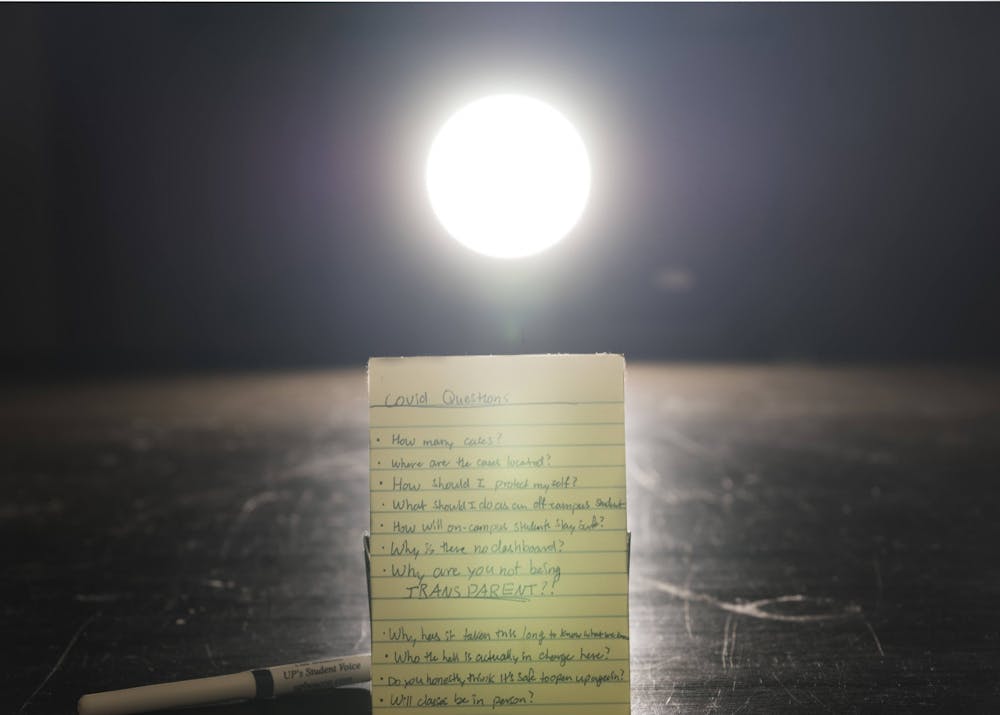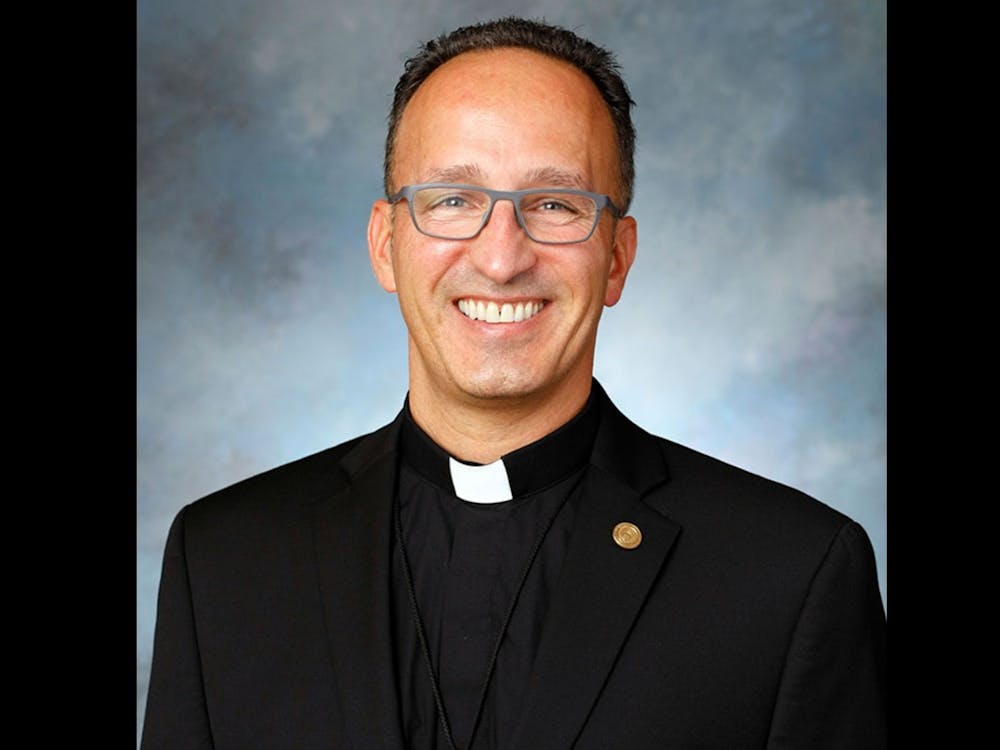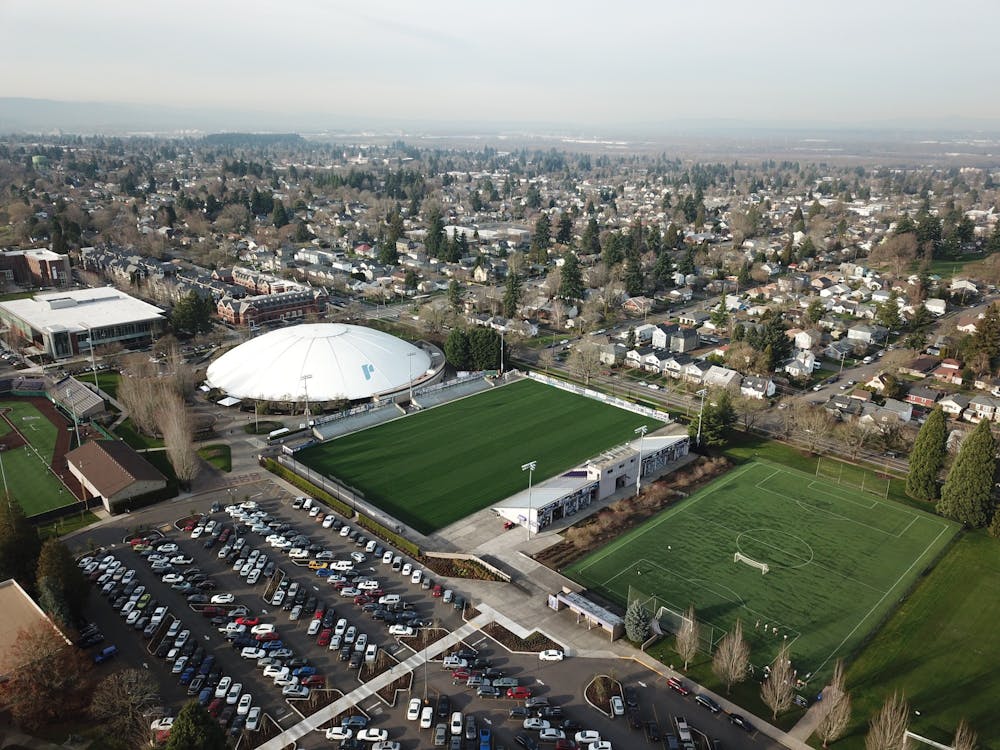Last Monday, when ASUP senators and board members asked Vice President for Student Affairs Fr. John Donato why UP wasn't sending students information about a confirmed case of COVID-19 on UP's campus, he responded that "sending out a mass email that somebody has caught COVID is not necessarily going to help people."
The administration knew of this case, yet no students, including those living on-campus, were told. This is unacceptable.
Despite campaigns to Wash UP, Back UP, and Mask UP it was inevitable that COVID would reach the UP community. Our University leaders have inadequately communicated their plan despite having months to prepare and strategize how to deal with the pandemic, as it is clear that many of us still have questions that have not been sufficiently answered.
And with approximately 1000 students applying to return to campus in January for spring semester, students coming back should be able to trust in the University to keep them safe and informed.
As “the Student Voice of UP since 1935,” it is our duty to seek the truth and report it for the benefit of the UP community. Unfortunately, this lack of transparency from UP is nothing new, and is something that The Beacon has been forced to deal with in the past.
The Beacon has struggled to obtain basic information about cases and protocols from administrators and Residence Life. Interview requests have been refused, emails have gone unanswered and reporters have been stood up. In conversations with upper administration it is unclear who is privy to what information and who to hold accountable.
What we have instead are rumors. It sends a distinct message that the administration is being purposefully evasive about COVID and their plans. As students potentially risking our health to attend this institution, this greatly concerns us. Students who are immunocompromised need to be aware of the exponential risk of returning to a campus that has positive cases.
There is no reason the university could not share the information about students having tested positive for COVID. In March 2020, the Department of Education released a statement that it is not a violation of Family Educational Rights and Privacy Act (FERPA) for an institution to release aggregate data on COVID cases as long as it does not identify a student by name.
Students on and around campus have the right to receive information that directly impacts their health, including the confirmation of positive cases. It would be worse for the school’s reputation if there were to be a huge outbreak of cases in the dorms rather than openly sharing the confirmation of a few cases and communicating swiftly how it is being handled. UP isn’t unique in that it has students who have tested positive. If anything, our school stands out because we lack data to share.
UP has also declined to contribute to nationwide reporting. The New York Times has an interactive article that specifically tracks COVID cases at universities across the country. While you can find the case numbers of schools in North Dakota or Maine and even other colleges in Oregon, there is no data from the University of Portland.
Other universities are sharing their numbers and have clear, accessible, easy-to-navigate platforms of information regarding COVID-19 and how they are dealing with it. For example, our sister school Notre Dame has a dashboard dedicated to test numbers with a chart that shows the trend in positive cases. This is part of a larger webpage that provides policies, detailed expectations for campus and student life and a way to report unsafe behavior.
At the ASUP meeting Donato said, “We have so few people here, and there were really no COVID cases confirmed. We have not had a dashboard, we don’t need a dashboard.”
We strongly believe that having a dashboard with accurate data from surveillance testing of the student body would give students the transparency we’ve desperately needed from the university. Having proof that the number of positive cases remains as low as the university claims provides reassurance compared to listening anxiously for rumors and tidbits of information.
There is a laundry list of other questions that have not been answered clearly. If you live off campus and catch COVID, what do you do? Who do you contact? What are the expectations for proceeding with school work? Who cares for the students that end up in isolation and will students have to pay for care? How does UP’s contact tracing process work?
At the ASUP meeting Donato said the school is taking “an educational approach [rather] than a judicial or consequential approach” to enforcing behavioral conduct - why was this policy decided on and how? It shouldn’t be this difficult to get this information, especially for a school so small.
Without communication, there is no trust. We expect that an institution such as UP would be capable of sharing relevant information in a timely manner, especially when it comes to the well-being of its students. But as we have seen, there has been no communication allowing for space to doubt in our leaders and doubt that they really have our best interests in mind.
This is well past the point of protecting reputations and trying to allay fears. As cases have skyrocketed in Oregon, the situation is more dire than ever. The decision to withhold information about positive cases is negligent and borders on harmful when there are lives at stake. This is no way to operate during a global pandemic. What our community needs is transparency and we need it now.
Hours after The Beacon published this editorial, Fr. John Donato submitted this response.
Have something to say about this? We are dedicated to publishing a variety of viewpoints and we’d like to hear from you. Voice your opinion in The Beacon.








